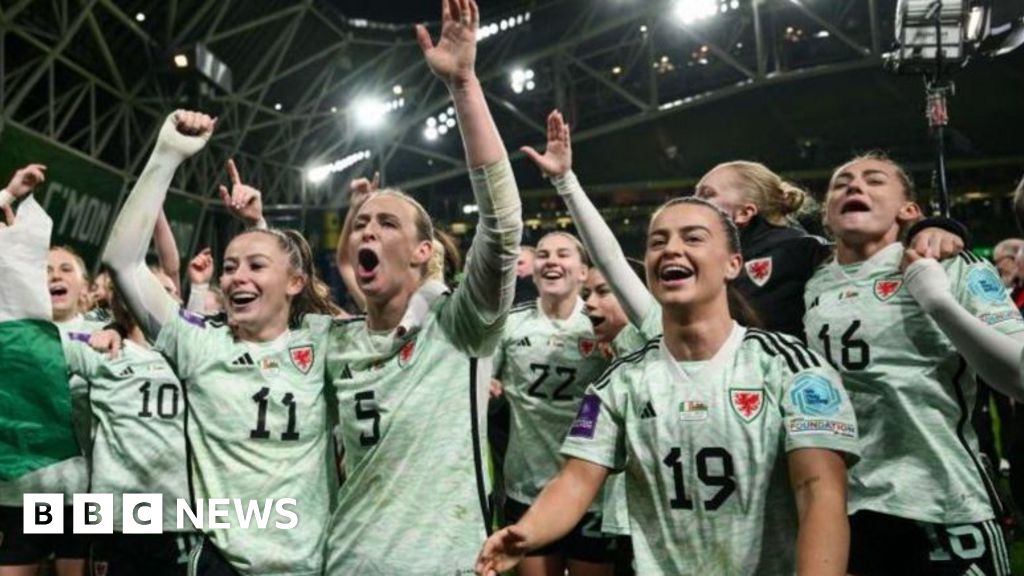Wales Makes History with Euro 2025 Qualification
A Momentous Achievement
On December 3, an emotional wave swept through Dublin as the Welsh women’s football team achieved a dream decades in the making—qualifying for a major women’s tournament for the very first time. The final whistle signaled not just a victory but a historic milestone for women’s sports in Wales.
Jess Fishlock and her teammates are now set to showcase their talent on one of the most prestigious stages in women’s sports—Euro 2025 in Switzerland. This achievement holds promise for the future of Welsh women’s football, extending its impact far beyond the tournament itself.
Anticipating Grassroots Growth
Excitement is already building as Wales prepares to face formidable opponents such as the Netherlands, France, and the defending champions England in the group stages. Welsh football officials are optimistic that this landmark qualification will significantly increase the number of young girls participating in the sport.
Research indicates that after England’s triumph in Euro 2022, there was a remarkable 140% surge in girls taking up football in the following season. In Wales, participation has seen a consistent upward trend since 2016, when the men’s team reached the European Championship semi-finals.
At that time, approximately 6,000 girls were registered with clubs, while the Football Association of Wales (FAW) aims to boost that number to 20,000 by 2026, currently sitting around 18,000. However, these stats do not even account for the football played in schools, suggesting an even larger potential base.
FAW Chief Football Officer Dave Adams expressed optimism, saying, “I believe we’ll surpass our target now that the team has qualified. This achievement could inspire a new generation of players striving to follow in the footsteps of legends like Jess Fishlock and Rhiannon Roberts.”
A Legacy of Inspiration
As Wales’ record goalscorer, Jess Fishlock emphasized the importance of this moment for the future of women’s football: “Our goal has always been to grow the game. I think we’ve made a significant impact.”
Officials from the FAW also see grassroots development as crucial. Begw Elain, Vice Chair of the FAW Youth Council, expressed hopes that this milestone would encourage more women to take on volunteer roles and coaching positions within the sport. “It will instill confidence in women in sports across Wales and inspire future generations,” she added.
Impact on Coaching Opportunities
The ambition is not limited to increasing player numbers; there’s also hope for a rise in coaching interest. Although challenges remain in attracting women into coaching roles, many women in administrative positions for grassroots clubs are eager to step onto the pitch.
Nia Davies, head coach of Wales’ under-19s team, stated that the team’s success would be invaluable to nurturing future talent. She observed, “We are witnessing more women participating in coaching courses than ever before, inspired by trailblazers like Rhian Wilkinson.”
The Power of Television Coverage
Wales’ journey to Euro 2025 will markedly enhance the visibility of women’s football. Wilkinson, the head coach, highlighted the significance of being drawn into the tournament, signifying Wales’ elite status in European football.
The exposure from the televised matches is expected to build on the growing interest in the women’s game. Euro 2022 in England set attendance records, with many attendees expressing improved perceptions of women’s football.
With the average attendance for Wales matches climbing significantly since 2021 and viewership for recent matches reaching high numbers, the momentum for women’s football is palpable.
BBC Wales Director Rhuanedd Richards posited that the next year could elevate support for women’s sports and contribute to broader societal changes by showcasing female athletes and their achievements.
Financial Benefits for Wales
Financially, Wales stands to gain considerably from their qualification. The FAW anticipates around £1.5 million in funds, with additional bonuses based on performance. While funds will be allocated for travel and player compensation, the real financial boon comes from potential sponsorships and future investments that could uplift women’s football in Wales.
As Noel Mooney, FAW Chief Executive, noted, “Our challenge will be accommodating the influx of girls eager to play football. We are in discussions with local authorities and the Welsh government to create the facilities required for this growth.”
The hopeful sentiment among officials reflects a determination to leverage this historic achievement for women’s football, establishing a solid foundation for future generations of players and coaches.
A Bright Future Ahead
The success of the Welsh women’s team is seen as a pivotal moment, not just for football, but for women’s sports as a whole in Wales. Ex-Wales international Helen Ward remarked, “This is our moment, and I feel it will inspire women and girls for years to come.”
As excitement builds ahead of Euro 2025, the path forward looks promising. This historic qualification is just the beginning of a new chapter in Welsh women’s football, inspiring a wave of participation, support, and recognition for female athletes across the nation.


